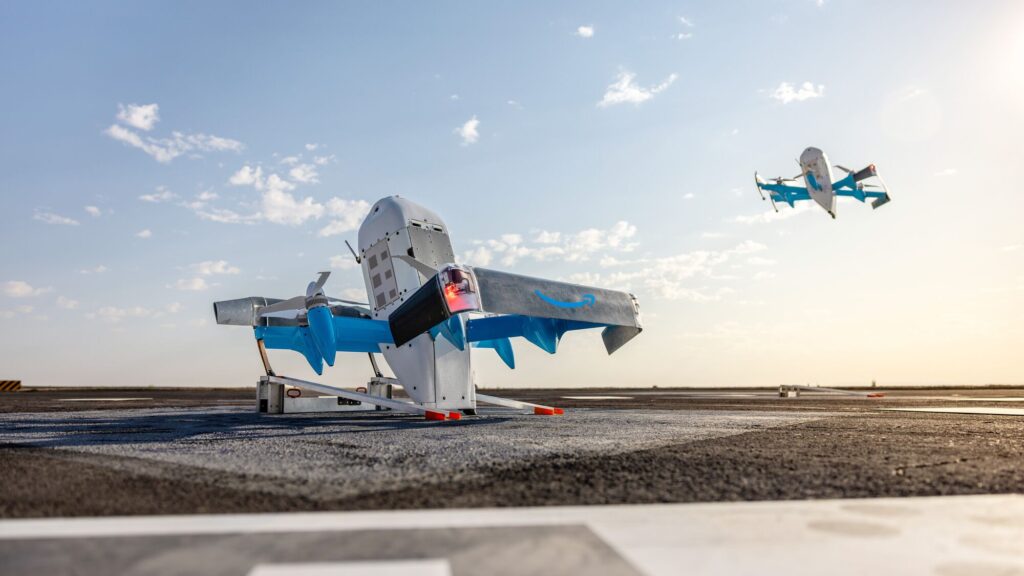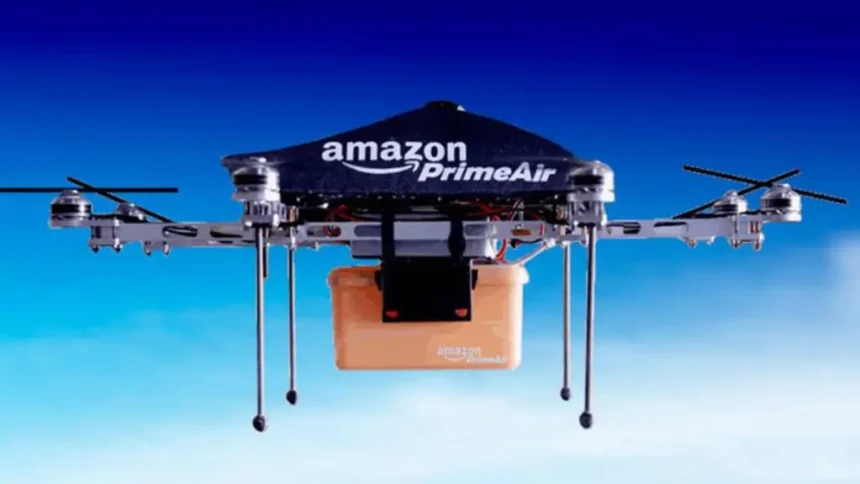— Amazon Air Prime adds QR-based location drop-offs for customers —
Amazon’s Prime Air drone delivery service has received approval from the Federal Aviation Administration (FAA) to deliver electronic products containing lithium-ion batteries across eligible areas in Texas and Arizona. This includes popular items like iPhones, Galaxy phones, AirPods, Ring doorbells, and grill thermometers.
What’s Happening & Why This Matters
The FAA’s nod allows Amazon to expand its drone delivery capabilities to high-demand, battery-powered gadgets that previously faced regulatory hurdles due to safety concerns. Customers in approved regions can now get these products delivered by drone in under 60 minutes by selecting drone delivery at checkout.
This approval supports Amazon’s ambitious goal to deliver 500 million packages globally by drone by 2030.
How Amazon’s Drone Delivery Works Now
Amazon’s drones, specifically the MK30 model, can fly in light rain and tolerate extreme temperatures, improving their reliability. Unlike previous methods requiring customers to place QR codes at delivery spots, the drones now use automated in-flight computer vision to locate preferred drop zones like driveways or yards.

Customers set their preferred delivery spot once, and Amazon remembers it for future orders, though it remains adjustable at any time. Before dropping off packages, the drone confirms that the delivery area is clear of obstacles like pets, cars, or people.
Amazon provides an estimated delivery time within five minutes of order placement, enhancing convenience and transparency.
If a drone cannot complete delivery, Amazon notifies the customer with an explanation. However, drone deliveries depend on favorable weather, using a 75-minute forward-looking weather predictor to decide if the service can operate safely.
Community Concerns and Safety
Despite the innovation, not all locals embrace drone deliveries. Residents of College Station, Texas, complained about drone noise last year; they urged the FAA to intervene. Additionally, in January 2025, Amazon paused its U.S. drone operations following a collision between drones in Arizona.
Amazon acknowledges these challenges but remains committed to improving drone safety and minimizing community disruptions as it scales the program.
TF Summary: What’s Next
With FAA approval to deliver lithium-ion battery products, Amazon advances drone delivery beyond simple packages to popular electronics. Prime Air faces the dual challenges of fast service with safety and community concerns as it expands operations.
The coming months and years will test drones’ integration into everyday logistics. More testing can determine whether this futuristic delivery model becomes routine for millions.
— Text-to-Speech (TTS) provided by gspeech


